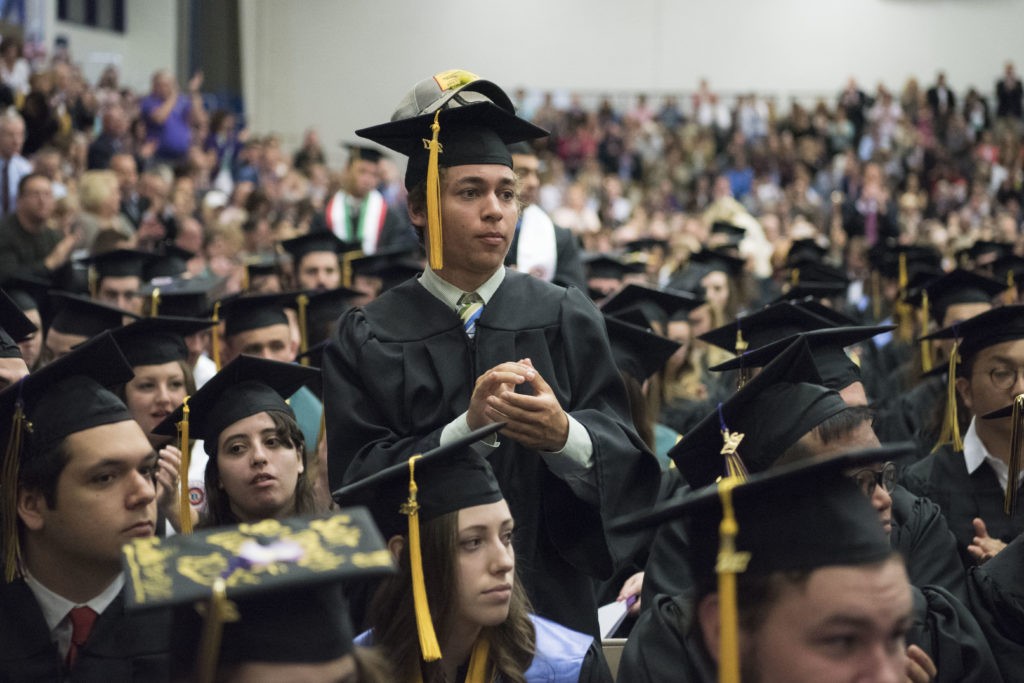Campus Involved Student Veterans & Success

Person A: “Join a club.”
Student Veteran: “I’m too old for clubs.”
Person A: “Volunteer on campus.”
Student Veteran: “I’m juggling my studies and family life at home. No time.”
Campus Involvement = Success
Coming up with reasons to avoid getting involved on campus come all too easily. That’s because we are happiest in our comfort zones.
But what if I told you that getting involved on campus thus adding to your list of responsibilities actually is proven to lead to higher success rates?! (Well, it’s true.)
“For traditional students, engagement begins in primary and secondary education and carries through higher education, with those most engaged in high school being the most likely to go on to college and attain a degree.” (Jenner, 2017)
So, what they’re saying is that those who are involved in primary and secondary school will be the most successful in college? Awesome, great! The problem for student veterans though is that there’s a big gap between secondary school and college due to their military service. But, what if that relationship between being involved on campus & success could be replicated for military-affiliated students returning to their studies? Could getting student veterans involved on campus be the key to success?
Challenges for Student Veterans
“Some of the most often cited challenges to student veterans transition to higher education are interpersonal and social challenges such as difficulties acculturating to campus, life, difficulties relating to student peers and campus faculty members, difficulties relating to family and friends after returning from service, and the loss of a sense of camaraderie.” (Jenner, 2017)
These challenges can lead students to feel out of place and unequal. (Again, go back to us being happiest in our comfort zones. Feeling out of place isn’t a feeling you experience when you are comfortable. Therefore, students can’t possibly thrive and be happy in a state such as this.) So, how do we make them feel a part of the campus community? How do campuses help their student veterans to thrive?
Co-Identity Organizations
“Over the past several decades a growing body of literature points to co-identity organizations as one factor that can improve transition and adjustment to higher education for many groups of students.” (Jenner, 2017)
Co-identity organizations are student groups or institutions centered around one or more specific aspect of identity, for example: veteran status. These organizations provide students with a safe place where everyone in the group shares that one specific aspect of identity (in this case, everyone is a veteran).
“Currently, about 62% of institutions of higher education have programs and services specifically for student veterans. Within the 62% of institutions that offer programs and services for veterans, 78% of public four-year institutions reported having a designated veteran/military student organization, while 52% of private not-for-profit four-year institutions reported having such organizations.” (Jenner, 2017)
With this many co-identity organizations on campus for veterans, one can’t help but wonder… Are these groups are being as supportive as they can be, or are involvement numbers low? While there are many different reasons (which we can’t begin to know them all) one of the main points we look back to is, are student veterans seeking out these groups of commonality with other veterans? Are they able to build each other up in this new and unchartered environment? Or are veterans feeling out of place on campus and not seeking out these groups?
What Are Your Thoughts On This Topic?
We would love to know your thoughts/experiences. Do you think military-affiliated students are more likely to thrive if they are involved on campus? Or does being involved on campus have nothing to do with academic success?
Resource:
Jenner, Brandy. Student Veterans and the Transition to Higher Education: Integrating Existing Literatures. Journal of Veterans Studies. 2017.


